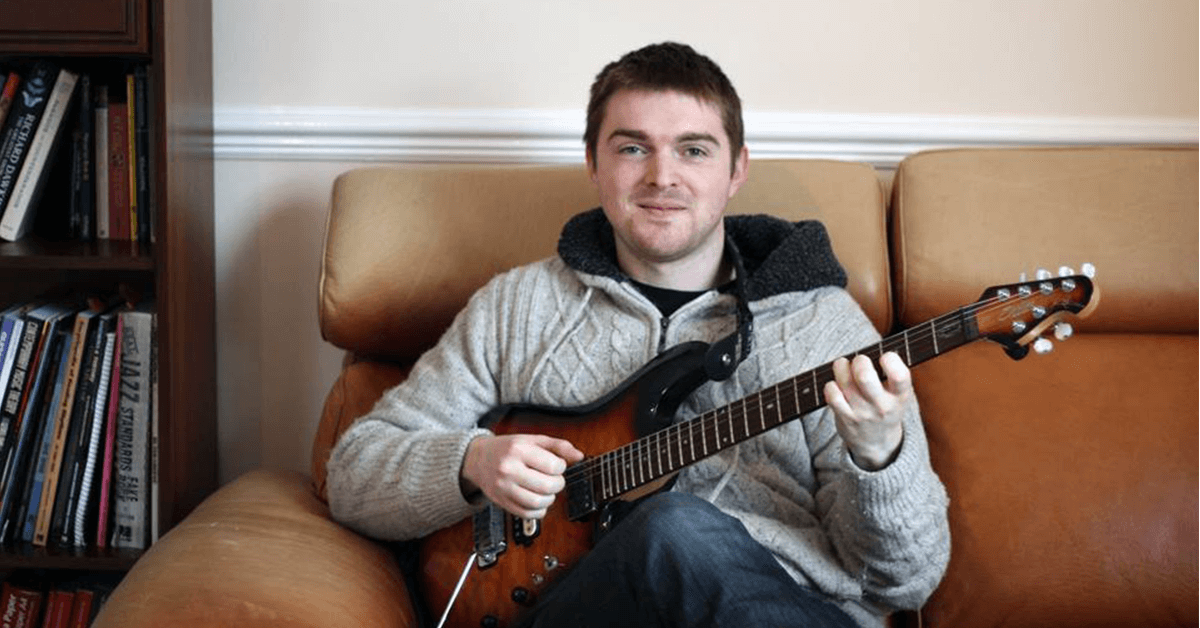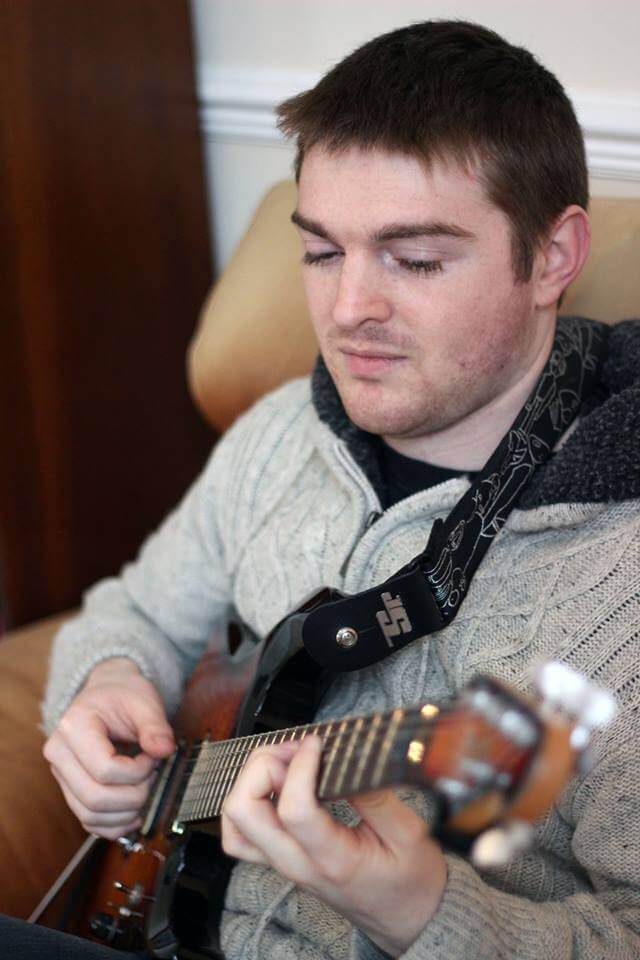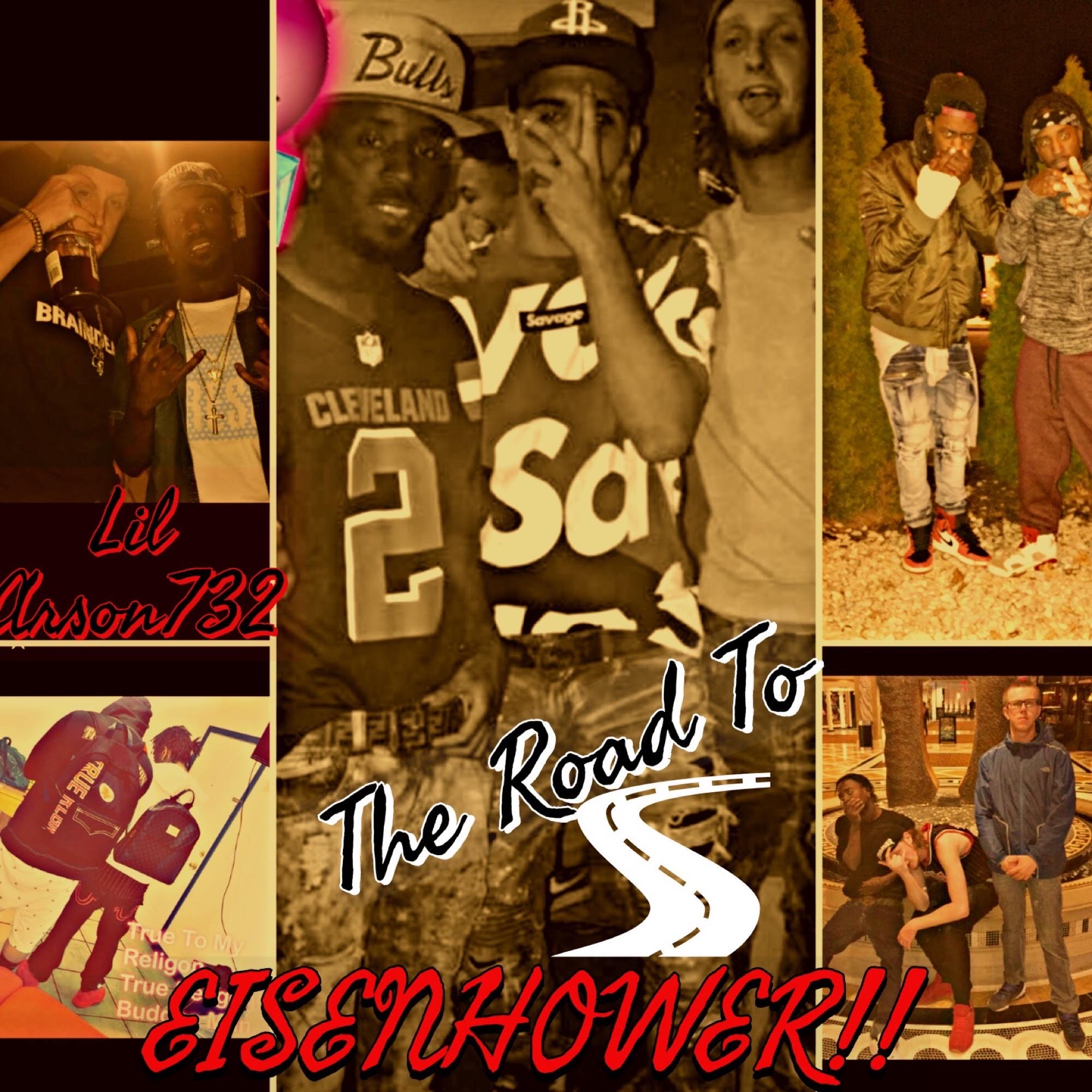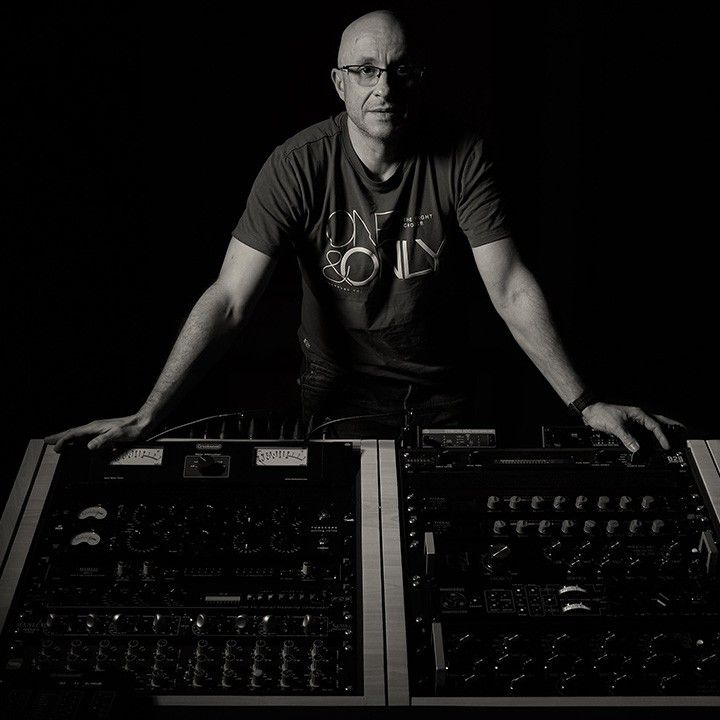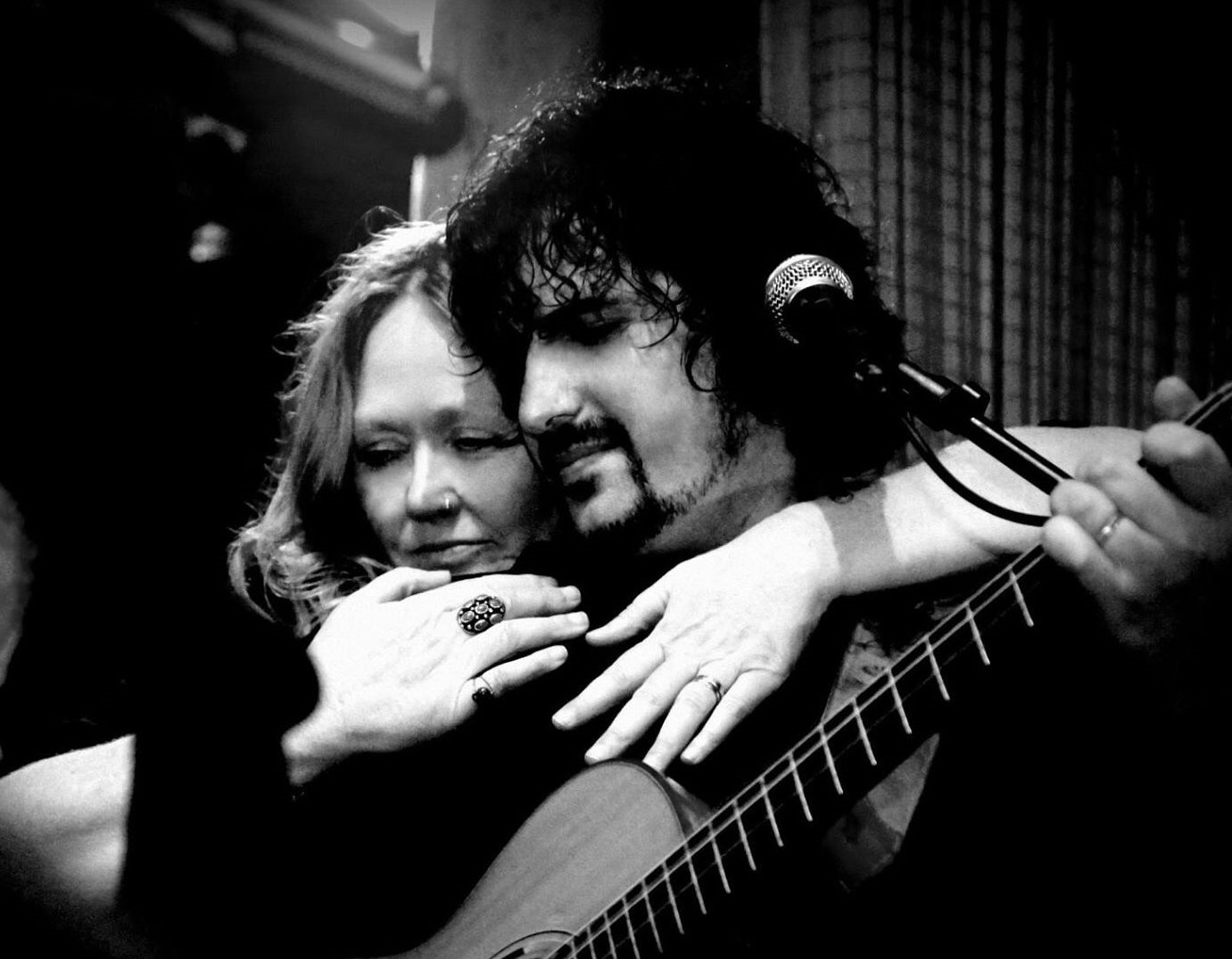Nick Weiland went to college with Ed Sheeran and that’s the least interesting thing about him.
Hey, people! Nick Weiland is this great guy we just met. He’s a professional musician, a guitar teacher and knows a thing or two about producing and sound engineering. This interview is both useful and informal so, please, have fun with it.
Hey, Nick! Say hi to the nice people.
Hello, everyone! Аll you lovely people who have signed up at Drooble! Allow me to introduce myself – my name is Nick Weiland and I’m a guitar teacher. I have been teaching guitar for roughly 6 years privately and more recently via Drooble and online. I am very grateful to be interviewed today as I always appreciate the extra attention to my career and profession.
I’ll just give a bit of background information about myself. I am a guitar player based in Brighton, in the United Kingdom, and I have been playing for 12+ years. I’ve studied at two prestigious universities – The Academy of Contemporary Music where I’ve acquired my diploma and a higher diploma in Professional musicianship in relation to the guitar, and the British and Irish Modern Music Institute where I specialized in teaching and guitar performance. During and after my studies I was teaching privately and also I was asked to help manage a recording studio with a friend helping the music scene record demos for local bands. I also do some session work when required. That’s a bit about myself and what I do.
You’re a professional musician – how long do you think it’s going to take for your education to fully pay off? Or has it already? And what the hell does that even mean?
Well, I’ll answer your questions backwards starting with what it means to be a professional musician. To me, being a professional at something means you are providing a service which people are willing to pay for. In order for it to be worthy for other people to pay for it, it needs to be of good quality. I like to think that I provide a good quality service when it comes to guitar teaching and hopefully in the future good music too :). As for the other question, that’s all dependent on how hard I work and how good I become as a musician. But it’s something most students don’t ever want to think about (ha ha) because there will always be a lot of debt to pay off.
Nick sounds smooooth 😉
[soundcloud url=”https://api.soundcloud.com/tracks/211249106″ params=”auto_play=false&hide_related=false&show_comments=true&show_user=true&show_reposts=false&visual=true” width=”100%” height=”450″ iframe=”true” /]
You know I’m going to ask you about Ed Sheeran. Do tell!
Yes, I do have a story about Ed Sheeran. We went to the same college and the same class together. The funny thing to me is that in my eyes he was just an average musician and guitarist. He was very shy and kept to himself and it wasn’t till he went on Jools Holland, a TV show in England, that he became as big as he is now. I find it very bizarre when I see him on TV, thinking that he was sitting on a desk next to me and learning how to play chords. Maybe he remembers me, who knows… but I wish him the best of luck!
You were a sound engineer at some point – what’s good and what’s bad about being one?
Yes, I was in charge of the recording side of things and mixing at Evolution Studios in Portslade. Well, let’s start with the bad side of being a producer. I’d say the bad side of being a producer is trying to get musicians to understand the importance of getting a good sound and making sure that musicians have rehearsed properly before recording. I mean, what’s the point of spending close to one thousand pounds on a recording if you haven’t learned your material inside out? The performance will suffer, you won’t get the gigs you want and you would have wasted your money and our time making something that doesn’t represent the quality of your band on a good day. This is the common complaint of an engineer, that and trying to keep musicians organized! That’s always a fun complaint!
Now the good thing about being an engineer! The greatest thing about being an engineer for me is meeting new people who play different styles and genres. It makes the job very interesting by having to work with and be exposed to different sounds. It also makes you think and work differently when having to accommodate the instruments in a band. For example, one band may have a keyboard player, xylophone drummer, and percussion plus a vocalist and two guitarists and a bass player playing acid jazz and making whale noises and having the time of their lives making really obscure music. And then, the next day you could get a three-piece (drums + bass guitars + vocalist) and they could play straight up rock and roll. The variety is what kept me interested. I also really enjoy mixing as I feel it’s like a jigsaw puzzle to getting the right balance for a good sound for the track in question. There’s something I don’t think artists think about often or understand and that’s that mixing and being a producer is like having another artist in your band because they can really make or break your sound or representation.
You’re currently making a living out of teaching music and mentioned you’ve taught online. What has your experience been so far?
Yes, I have taught online before but it’s on a rare occasion as most of my teaching is face to face. I have no issue with it as to me teaching online isn’t that much different from teaching face to face. To be honest, the only thing that takes away from teaching face to face is the energy and that indescribable feeling of something I like to call skills osmosis. I’m not claiming this to be a real thing but in my experience when I was learning from a good teacher face to face I felt myself getting better from being with them in the room. I try to provide the same feeling that I got when I was being taught and bring that to the online experience as much as possible.
The other downside of teaching online is that if you are teaching complete beginners sometimes you really need to physically show them how their fingers need to be to make chords and especially when doing techniques such as bending and vibrato. The cool thing about teaching online is that you get to teach people from all over the world and the skill level can vary greatly from person to person. I guess I don’t have many online students right now because I haven’t produced much online material. This will be fixed, though, as I’ll be uploading video lessons soon in which we will be discussing a variety of topics, all primarily aimed at increasing the quality of guitar playing. So be sure to subscribe to my YouTube channel, follow my Drooble page and check it out!
How many students do you teach right now?
I currently teach 10 students a week but since I’m looking forward to increasing this number at least two times Drooble seemed a logical solution. If you want to improve your skills and become a better guitarist, just ask for a lesson!
Apart from lessons, do you think people can meet and jam online, and create real music together?
I don’t see why not! I think websites like Drooble are fantastic to connect people who would never have the chance to meet under other circumstances. Being the old guy that I am (nearly 30), I can remember what it was like before the Internet and there would be no way I could, for example, jam with someone from Australia, or anywhere in Europe for that matter, and have a good time doing so – all from the comfort of my own home! It’s insane! But the good kind of insane, you know, when you’re just having so much fun that you don’t care about anything else. It’s great to jam with people and find out instantly what they are about musically by trying to make something work in that moment there and then.
As for creating music together, that does require a different skill set than improvising because you need to be able to compose music. So someone needs to flesh out an idea and everyone needs to have the ability to be able to record for it all to become a song. I absolutely think that if those conditions are met something like Drooble is a great place to meet musicians that you may be missing from a track. For example, I will be writing an album soon and I don’t have the musicians I need so Drooble would be great to find the bass player, drummer and other instrumentation for the sounds that I need.
What do you think of Drooble?
I think that it has a lot of potential to be a great platform for musicians to come together, jam, earn some money via teaching and be able to produce music with people you wouldn’t normally connect with. Because it’s still in its early stages, I can definitely see it could be something that can be a lot bigger and very useful to emerging artists.
What’s the most important thing you want your students to remember?
That’s a very tough question to answer. From a funnier perspective, whatever I taught my students during the last lesson, they need to grasp the concept of before the next lesson begins. But to take the question more seriously, if anyone becomes a student of mine I’d like for them to be able to become much better than they were before they had lessons with me. I’d like them to remember all the useful bits of information I gave them and most importantly to be good listeners. Playing your instrument well depends on how you hear the music and on your knowledge of the instrument. My job as a teacher is to point out what a student doesn’t know and help them to fill the gaps.
I’ve checked out your Soundcloud account. Do you have a weird fascination with K-pop or was it just something you had to do for work?
An interesting thing to mention – the K-pop stuff I was doing consisted of session work for a top producer in LA. Since Korean pop music is going through a stage of boy bands and girl bands, there’s a lot of money in that part of the industry and a lot of producers from LA are taking notice. I was asked to come up with a few ideas which you can see here. Korean pop is roughly 20 years behind most Western music. When big acts like the Spice Girls or Backstreet Boys were emerging in the 90s there was a lot of money involved with them. That is exactly what’s happening with Korean pop currently.
What do you listen to? Who are your musical heroes?
I mostly listen to instrumental rock musicians as I love how the guitar can be used as a voice. My main influences are Joe Satriani, Steve Vai, Andy Timmons, Neil Zaza, Frank Zappa, Red Hot Chilli Peppers, Gary Moore, David Gilmour, Santana and many more. I’d say my biggest influence is Joe Satriani, though. He’s done so much to make the instrumental guitarist a viable career option. Albums like “Is there love in space” and “Surfing with the alien” are probably my favourite albums to listen to in this genre. They really helped me find my own voice as a guitar player.
Name three artists or bands we’ve probably never heard before but should definitely check out.
Well, three artists, that I would advise you guys to check out would be Andy Timmons, Martin Miller and Blues Sarenceno. These guys are really awesome at their instruments and will definitely teach you more about the guitar!
I would just like to say thanks to the team at Drooble for putting this interview together and don’t forget – if you want a lesson with me go ahead and find me on Drooble.
Many thanks to everyone and I hope to be your teacher soon!
You can also follow Nick Weiland on…

